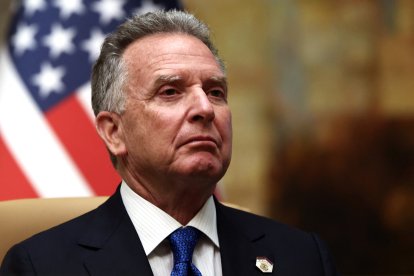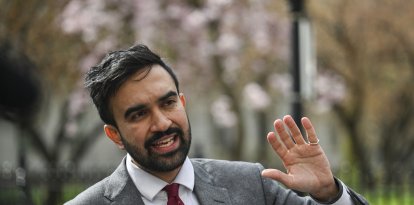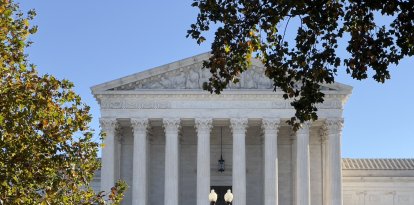Witkoff: Hope for Iran deal, new Abraham Accords members
Talks with Tehran show promise, said the U.S. Middle East envoy, who hinted at "an array" of new countries joining the Abraham Accords normalization agreements.

US Middle East envoy Steve Witkoff
In a wide-ranging interview with CNBC on Wednesday, U.S. Special Envoy for Peace Missions Steve Witkoff expressed optimism about the prospects for a comprehensive peace agreement in the Middle East, signaling ongoing dialogue with Iran and hinting at new countries joining the Abraham Accords.
His comments come as a tenuous Iran-Israel ceasefire announced by U.S. President Donald Trump on Monday continued to hold and after American strikes on Iranian nuclear sites early Sunday.
A deal with Tehran would be a “renaissance” for the Gulf Cooperation Council (GCC), the region and the world, said Witkoff.
The envoy also suggested that the Abraham Accords, the U.S.-brokered normalization agreements between Israel and several Arab states, may soon see significant expansion.
“We think we’re going to have some pretty big announcements on countries that are now coming into the Abraham peace accords, and we’re hoping for normalization across an array of countries that maybe people would have never contemplated would come in. So we’re excited for that prospect. That will also be a stabilizer in the Middle East,” said Witkoff.
Addressing concerns over Iran’s nuclear ambitions, Witkoff reiterated the U.S. position on enrichment and weaponization: “That’s for sure the red line. That’s always been the red line. Enrichment is the red line and beyond enrichment, weaponization is the red line. We can’t have weaponization. That will destabilize the entire region. Everyone will then need a bomb and we just can’t have that.”
He further elaborated on the vision for Iran’s civilian nuclear program: “Now the issue, the conversation with Iran is going to be: ‘How do we rebuild a better civil nuclear program for you that is non-enrichable. Very similar to the non-enrichment program that is in the UAE today and that many other countries operate. You don’t need enrichment to run a nuclear energy program.'”
Responding to questions about recent U.S. and Israeli military actions, Witkoff dismissed reports downplaying their effectiveness: “First of all, the IAEA thinks the exact opposite of that, the Israelis think the opposite of it, our CIA thinks the opposite, so it’s just preposterous. The Israelis did plenty of damage before we came in, and when we came in it added, it basically created lots of certainty around the eradication of their ability to weaponize and to enrich.”

Politics
Trump's top intelligence chiefs insist: Iran's nuclear facilities were destroyed
Emmanuel Alejandro Rondón
On the topic of nuclear monitoring, Witkoff emphasized transparency and international oversight: “It will be robust observation, and the Iranians accept that. We talked about it. Hopefully if they’ve got nothing to hide, then they’re not going to have any issues with robust observation.
“The IAEA right now under Rafael Grossi has been doing that observation, it may be supplemented by us. But I think what we really want to do is get everybody to understand that this is better for the region. This is better for the economic progress of all the nations in the region, including Iran. So this is a good thing, this is a positive thing for everybody. We just don’t need to have conflict in that region anymore.”
EU states laud tenuous Iran truce, vow to block nuclear drive
Separately, Russia’s Foreign Ministry accused Israel and the U.S. of starting the war and reiterated its call for preventing an escalation.
German Chancellor Friedrich Merz tweeted that he “Welcomes the American President’s call for a sequenced ceasefire. If this ceasefire succeeds following the decisive U.S. military strikes against Iranian nuclear facilities, it is a very positive development.”
© JNS


























